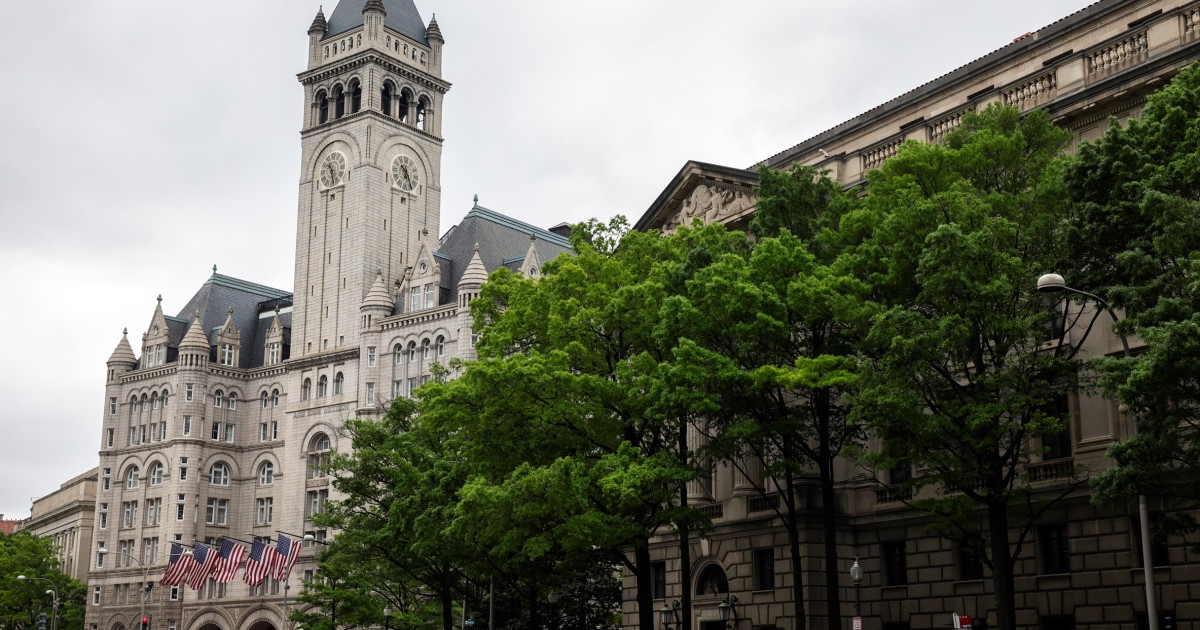WASHINGTON — The Supreme Court agreed Monday to consider whether individual Democratic members of Congress can file a lawsuit seeking government documents related to the former Trump International Hotel in Washington.
In an unexpected twist, the lawmakers are taking on the Biden administration, which inherited the case after former President Donald Trump left office in 2021.
Attorney General Elizabeth Prelogar, representing the administration, said in court documents that an appeals court decision allowing the lawsuit «contradicts historical practice extending back to the beginning of the Republic» and «threatens serious harm to all three branches of the federal government.
The appeals court decision changed the historical practice of administrations negotiating with Congress on information requests, he added.
The case stemmed from a 2013 decision by the General Services Administration, which oversees federal real estate, to lease the Old Post Office building in Washington to the family-owned Trump Organization so it could operate a hotel.
The Trump International Hotel operated throughout Trump’s term, raising legal, ethical and constitutional concerns, including over whether the people paying for the rooms were seeking to influence the White House. Trump’s company sold the lease last year and the hotel now operates as a Waldorf Astoria.
When Trump won the 2016 election, 17 Democratic members of the House Oversight Committee, led by Rep. Elijah Cummings, D-Md., sought access to documents related to the deal and questioned whether Trump had a conflict of interest. (As a result of changes to the committee, including Cummings’ death in 2019, only five lawmakers remain involved in the case, according to the Justice Department.)
House members filed several requests, citing a federal law that requires executive agencies to provide information to members of Congress.
GSA, then controlled by the Trump administration, rejected the request, though it later turned over many of the documents lawmakers sought while withholding others.
Lawmakers in 2017 sued in federal court in Washington, seeking an order requiring the GSA to release all documents.
A federal judge dismissed the lawsuit, saying the lawmakers did not have standing. In general, lawsuits can only move forward if the plaintiff can assert an injury that the court can repair. The district court applied a 1997 Supreme Court ruling that said members of Congress cannot claim damages related to their official duties.
in a 2020 ruling Issued just before Trump left office, the US Court of Appeals for the District of Columbia revived the lawsuit, with a three-judge panel ruling 2-1 that the lawmakers had been wronged. The court cited the freedom of information law, which allows people to sue when requests are denied.
After Trump left office, the Biden administration requested a rehearing in the appeals court, then turned to the Supreme Court when that request was denied.
Prelogar wrote that the appeals court ruling would allow the most outspoken members of Congress to engage any administration in protracted litigation. Similarly, the decision weakens the ability of House and Senate leaders to control negotiations with the White House on such issues, she added.
Lawyers for the lawmakers wrote in court documents that there was no reason for the Supreme Court to get involved because the General Services Administration’s normal practice is to grant document requests. Since litigation under the specific federal law is so rare, «there is no support for GSA speculation that it may become a breeding ground for abuse,» they added.

